Norman Family Crest, Coat of Arms & Norman Name Origin
|
|
|
|
|
| Return to Home page | Bookmark this page | Link to this page | Send a Norman Postcard |
| Find Your Name | ||||||||
| A | B | C | D | E | F | G | H | |
| I | J | K | L | M | N | O | P | |
| Q | R | S | T | U | V | W | X | |
| Y | Z | |||||||
Norman Family Crest


Origin of the Name Norman
The ancient history of the name Norman was found in the allfamilycrests.com archives.
Over the centuries Surnames developed a wide number of variants. Different spellings of the same name can be traced back to an original root. Additionally when a bearer of a name emigrated it was not uncommon that their original name would be incorrectly transcribed in the record books at their new location. Surnames were also often altered over the years based on how they sounded phonetically and depending on the prevailing political conditions it may have been advantageous to change a name from one language to another.
Variants of the name Norman
include Normand and Normanby. Meaning 'the Norman', this is a locational name from someone who came from the North. It can often refer to Viking invaders who were typically called 'men from the North'. This name is of Anglo-Norman descent spreading to Ireland , Scotland and Wales in early times and is found in many mediaeval manuscripts in these countries. Examples of such are a Mathew le Norman, Oxford, who was recorded in the 'Hundred Rolls', England , in the year 1273 and a Lucas Normanus, County Devonshire, who was recorded in the same document in the thirteenth century. In Ireland the name Norman and its variants are today mostly associated with County Dublin although they were introduced into Ulster Province, and County Derry in particular, by settlers who arrived from England and Scotland , especially during the seventeenth century. In the midland Counties there are some occasional references to the name Norman as early as the thirteenth century.
The Norman coat of arms came into existence centuries ago. The process of creating coats of arms (also often called family crests) began in the eleventh century although a form of Proto-Heraldry may have existed in some countries prior to this. The new art of Heraldry made it possible for families and even individual family members to have their very own coat of arms, including all Norman descendants.
|
WONDERFUL GIFTS FOR EVERY OCCASION
Show Off Your Heritage With Our Range Of Top Class Gifts For Your Family Name! VERY LIMITED TIME OFFER: FREE DELIVERY!!! |
||
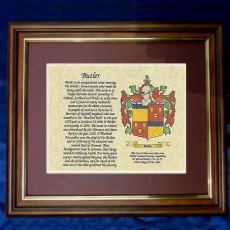 Parchment Prints: Framed, Unframed, Perfect  |
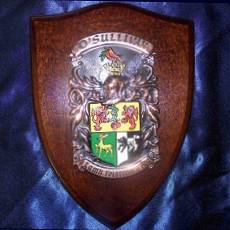 Researched Hand-Painted Plaques & Shields  |
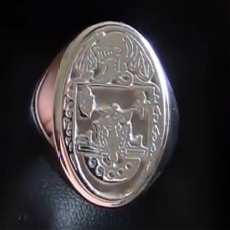 Incredible Hand-Engraved Signet & Seal Rings  |
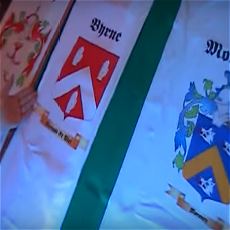 Get your Family Crest Flag, on Ireland or White background!  |
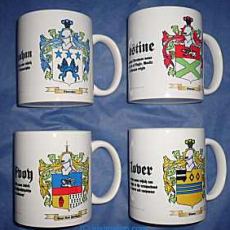 Personalized Coffee Mugs Make Thoughtful Personalized Gifts  |
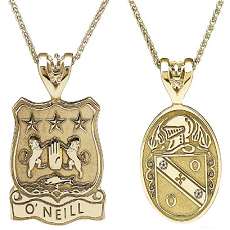 Engraved Pendants in Gorgeous Gold or Stylish Silver.  |